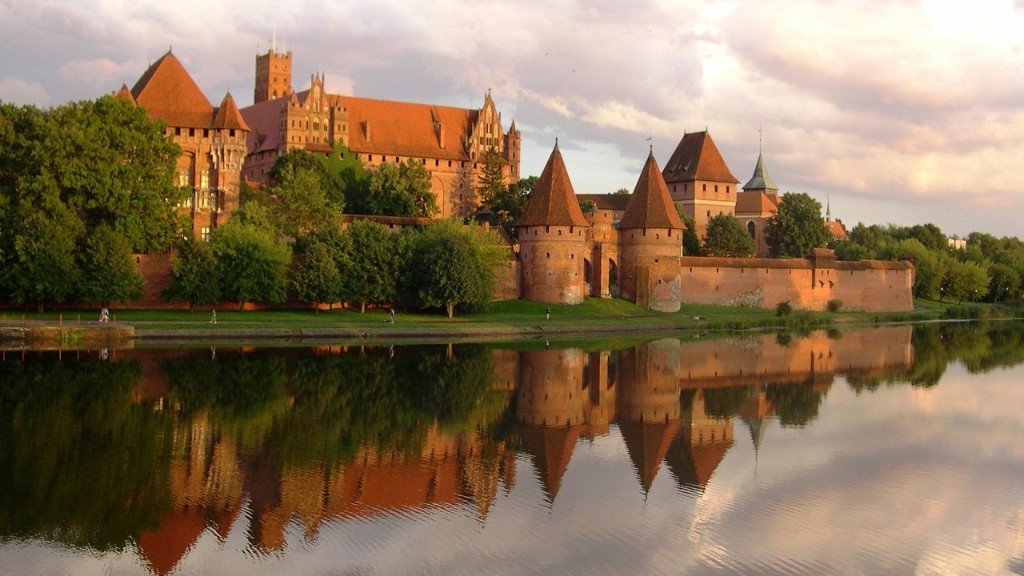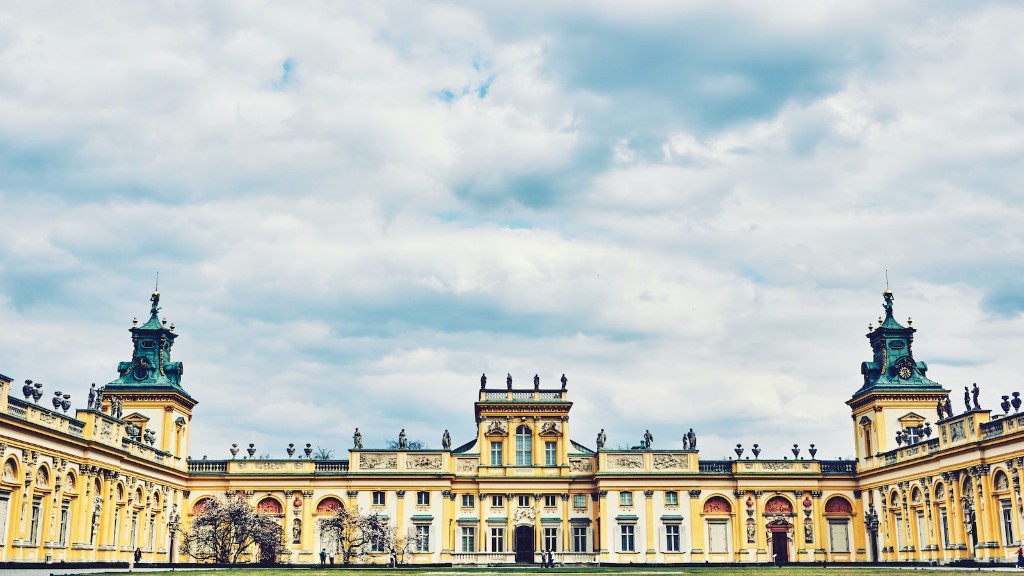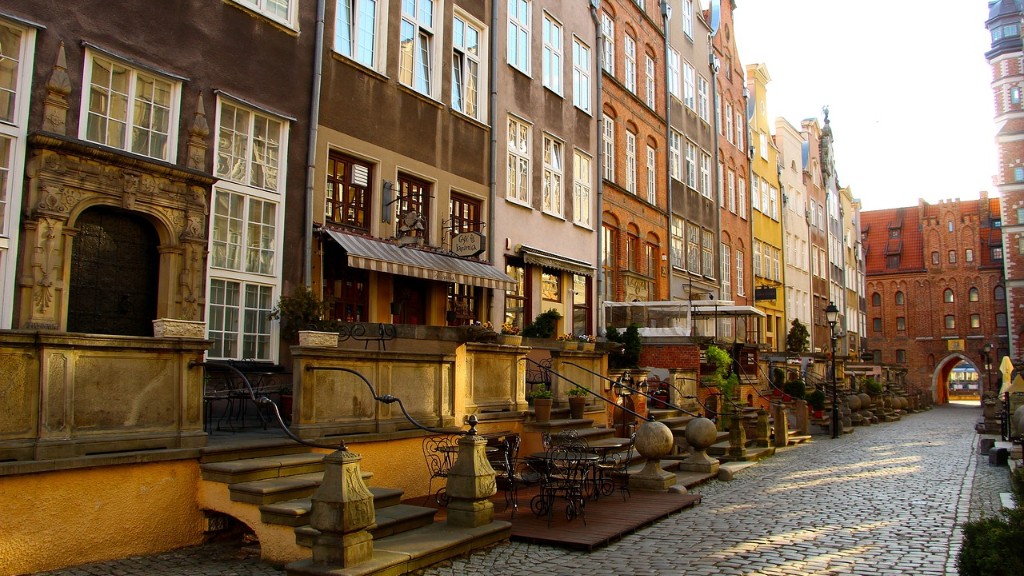When and Why Did the USSR Take Over Poland
After World War II, the Soviet Union took control of Poland as part of the peace agreement. This process was set in motion with the signing of the Yalta agreements in February 1945 and was completed in July 1945. At the time, Poland was considered an occupied country. This decision was mainly led by Stalin, whose objective was to extend Soviet control over eastern Europe in order to prevent further invasions from other powers.
The Soviets seized power in Poland from the Nazi German occupation and implemented a whole new system of Soviet-backed communism. They quickly established a provisional government that was dominated by the Polish Workers’ Party, which was loyal to Moscow’s instructions. This government was then replaced by the Communist Polish United Workers’ Party (PZPR) in 1948, which became the sole political organization in the country.
The new government was heavily influenced by the Soviet Union, and the communist party was particularly active in ensuring the state’s adherence to Stalinist ideology. Moscow played a pivotal role in shaping the Polish government, from setting up its institutions to controlling the media, education system, and economy.
The Soviet rule was harsh and oppressive, and the Poles were very unhappy with the situation. Many citizens, both intellectuals and laborers, were politically persecuted and stripped of their rights. People from all walks of life began protesting and expressing their discontent with the Soviet Union’s presence. This led to a series of uprisings, the most significant of which was the “Polish October” of 1956, in which over 70,000 citizens marched in protest of the Soviet Union’s rule.
Additionally, the Soviet Union’s control of Poland was challenged by international powers, including the United States. US President Ronald Reagan even made a speech in 1987 urging for the dissolution of the Warsaw Pact, a military alliance created by the Soviets in 1955.
Despite the opposition from the West and the Polish people, the Soviets maintained control of Poland until 1989. The fall of the Berlin Wall in November 1989 marked the beginning of the end for the Soviet Union in Eastern Europe. Poland, along with other Iron Curtain countries, soon followed suit. In 1990, the first non-Communist Prime Minister since 1945, Tadeusz Mazowiecki, was elected and in 1991 the country declared its independence from the Soviet Union.
Consequences of the Soviet’s Occupation of Poland
The Soviet Union’s occupation of Poland had a profound effect on the country’s political, economic, and social structures for decades. The oppressive rule had a significant impact on the country’s development, and the Soviet Union’s decline left behind a legacy of instability and corruption.
Politically, the Soviet Union’s presence had a pervasive influence on the country, distorting its elections and appointing its leaders. The system imposed by the Soviets was extremely damaging because it bypassed the public’s control over the government, resulting in the undermining of the country’s democratic process.
Moreover, the Soviet Union’s rule allowed for rampant corruption at the highest levels of the government. Many prominent businessmen and politicians were able to exploit their positions of power to make illegal financial gains. This, in turn, caused an extreme disparity in wealth between the different classes in the country.
Finally, the Soviet Union’s occupation of Poland resulted in the emergence of organized crime. With the government’s control of the economy, individuals with connections to organized crime were able to take advantage of the inefficient system to gain illegal profits.
The Impact of the Soviet Union’s Rule on Postwar Poland
The Soviet Union’s rule had a lasting impact on the nation of Poland. It constrained the country’s economic development for many years as its resources were directed towards the needs of the Soviet Union.
Moreover, the occupation left behind a lack of trust in the government. People were reluctant to invest in their country due to the lack of a strong government that could guarantee the stability of their investments. This, in turn, caused a long-term stagnation in the economy that only began to change in the 1990s.
The Soviet Union’s rule also had a significant impact on the country’s education and health systems. Resources were strained by the Soviet occupation, and the country had to rely on foreign aid to support its university system and public health services. This led to a lack of access to quality education and health services for many Poles.
Additionally, the language issue became a major factor during the Soviet occupation. Soviet authorities restricted the use of the Polish language in television, radio, and newspapers. Moreover, they instituted an intense censorship regime that prohibited the citizens from speaking freely or questioning the government’s legitimacy or policies.
Poland’s Struggle After Soviet Occupation
After the collapse of the Soviet Union in 1991, the nation of Poland found itself in a state of flux. The economic crisis that had been caused by the Communist rule had led to a deep recession, and the new government had to implement drastic reforms to try and revive the economy.
These reforms took the form of liberalization of the economy, the privatization of state-owned enterprises, the reduction of trade barriers, and other measures. These reforms had mixed results, but they gradually had a positive effect on the economy, allowing for economic growth and higher standards of living for the people of Poland.
At the same time, the nation was also in the process of transitioning to a democracy. The first non-Communist elections since 1945 were held in 1989, and the newly elected government began to implement democratic institutions. This process was not without its challenges, but the country was eventually able to establish a democratic system and protect the political and civil rights of its citizens.
The government also instituted various measures to reduce corruption and increase accountability. The rule of law was established, and laws were enacted to combat bribery and ensure transparency. This allowed for more financial security and the emergence of a vibrant private sector.
The Legacy of Soviet Occupation in Poland
The decades of Soviet occupation of Poland left behind a lasting legacy. The oppressive rule had a deep and lasting impact on the nation, and many of the consequences are still felt to this day. The political and economic repercussions of Soviet rule affected the nation’s development for many years, and only in recent decades has the country been able to recover.
The Soviet Union’s occupation of Poland was also a lesson in the importance of democracy and the protection of civil liberties. Poland’s democratic transition was a long and arduous process, and it serves as an example of the power of the people when united in pursuit of freedom and justice.
The Current State of Poland
Poland has come a long way since the fall of the Soviet Union. The country is now a flourishing democracy with a growing economy, a vibrant private sector, and strong institutions. Economic growth has been steady since the 1990s, and the standard of living of the Polish people has increased significantly.
The country has also been able to maintain its political independence in the face of a new wave of authoritarianism in the European Union. Poland has been at the forefront of the fight against the erosion of democracy and the abuse of human rights, and this has been instrumental in preserving the country’s freedom and sovereignty.
At the same time, the nation has been able to maintain good relations with its neighbours. Poland has made great strides in fostering cooperation with its eastern neighbours, especially the countries that were formerly part of the Soviet Union. This has been instrumental in promoting peace and stability in the region.
The Future of Poland After Soviet Occupation
The future of Poland looks bright. The nation has overcome the legacy of the Soviet occupation and has established itself as a successful democracy and economy. The country has a strong and vibrant private sector, and its citizens have access to education and health services of a high standard.
The government has also implemented policies to ensure that Poland remains a tolerant and open society, and it continues to play a prominent role in preserving the nation’s democratic values and civil liberties. This has been instrumental in establishing a strong and unified nation in the face of a new wave of authoritarianism in the world.
Poland’s future looks promising, and the nation appears to be on its way to becoming an even more prosperous and successful nation in the years to come.





